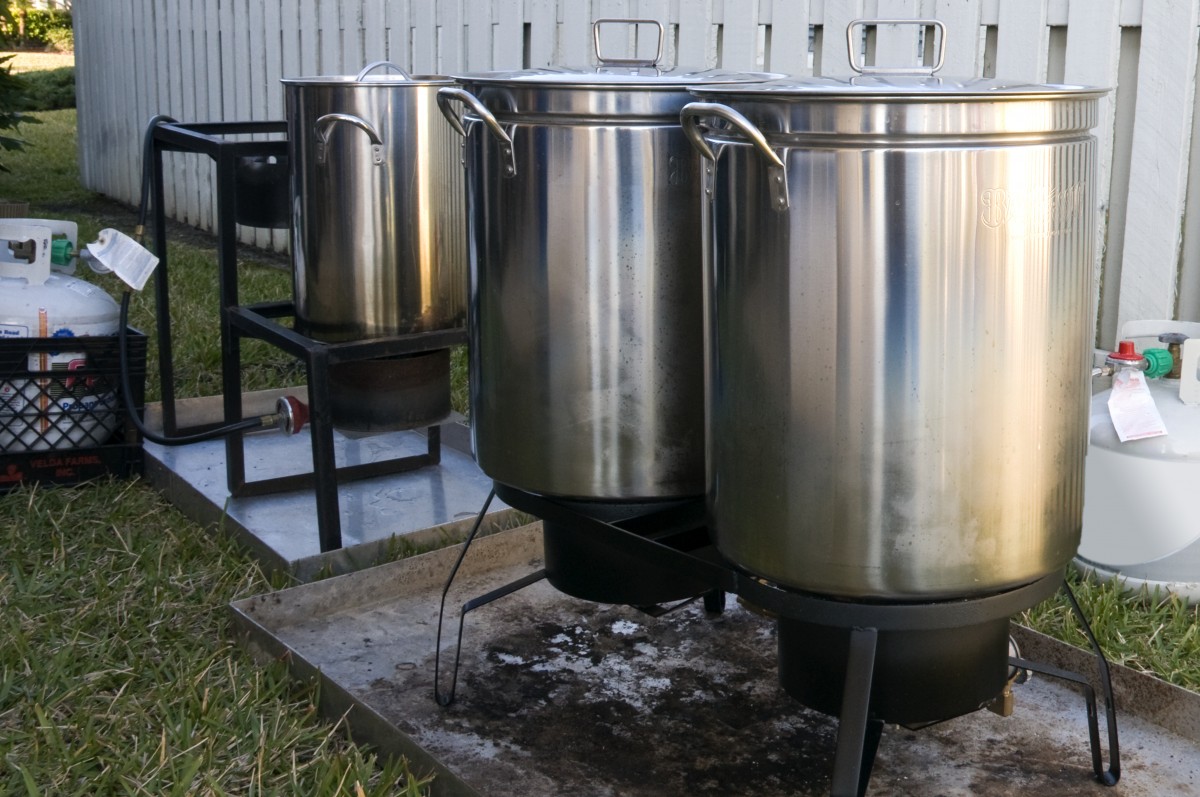Is A Fried Holiday Turkey A Fire Hazard?
Is A Fried Holiday Turkey A Fire Hazard?
Frying a holiday turkey may sound like fun, but it can be tricky. Here are a few tips from University of Georgia experts to help make sure your bird is thoroughly cooked and your holiday doesn’t include a trip to the emergency room or a call to the fire department.
 Frying a holiday turkey may sound like fun, but it can be tricky.
Frying a holiday turkey may sound like fun, but it can be tricky.
“People who fry turkeys say it produces a moister turkey. And, it’s quicker,” said Elizabeth Andress, professor in the online Master of Science in Foods and Nutrition, Community Nutrition program. “But in the eyes of safety experts, the typical propane-fueled turkey fryer is a major accident waiting to happen. There are definitely safety issues to consider.”
Andress and other UGA experts have a few tips to make sure your bird is thoroughly cooked and your holiday doesn’t include a trip to the emergency room or a call to the fire department.
Don’t use too much oil
Some of the most serious injuries are caused by faulty or misused equipment, like unstable fryer stands, uninsulated pot handles and or fry pots that have been overfilled with oil.
Filling the pot too full of oil can cause the oil to spill over when the turkey is placed in the pot. In addition to creating an oily mess, spillovers at cooking temperatures can cause severe burns, Andress warns.
To find the right amount of oil for your turkey, Andress suggests following these tips from the National Turkey Federation.
Before you marinate the turkey, put it in the fryer basket and place the basket in the pot. Add enough water until it reaches 1 to 2 inches above the turkey. Now remove the turkey and mark the water level. Pour out the water and dry the pot. Now, it’s time for that turkey.
Food safety by the fryer
Andress urges holiday chefs to keep food safety in the forefront when frying turkeys.
“You have to be sure all the harmful bacteria have been killed,” she said. “The only way to do this is to measure the temperature of the cooked turkey in several places with a food thermometer.”
First, heat the oil to 365 to 375 degrees Fahrenheit. This usually takes 45 minutes to an hour.
Next, add your turkey and allow the oil to return to 365 to 375 degrees. Whole turkeys require about 3 minutes per pound to cook. To be sure your bird is safely cooked, she said, the temperature must reach at least 165 degrees in the thickest part of the breast. Some cooks prefer the innermost part of the thigh to reach 180 degrees.
If the thought of lowering a 12-pound turkey into 8 gallons of bubbling oil, suspended over an open propane flame makes you nervous, there are now electric fryers available that take some of this guesswork out of the process.
New fryers available
“A new electric infrared fryer is now available that doesn’t even use oil,” she said. The Big Easy is a propane powered infrared roaster oven that cooks whole poultry, roasts and other large cuts of meat. “It is said to give foods the look and taste of fried foods.”
Electric indoor fryers are also available. Designed strictly for indoor use, the electric fryer’s safety features include a control panel with a built-in safety switch. If the panel isn’t attached properly, the fryer won’t work.
“Consumer Reports evaluated the electric indoor fryer that has added safety features such as (sturdier) legs and temperature sensors for automatic shutoff,” Andress said. “At least one model will hold up to a 14-pound turkey.”
The fryer also has a temperature sensor that automatically shuts down the heating element if the oil gets hotter than 400 degrees Fahrenheit. “Propane-fired turkey fryers can heat the oil until it bursts into flame,” Andress said.
Safety measures
No matter which type of fryer you use, Andress recommends following these safety steps:
- Use propane-fired turkey fryers outdoors, a safe distance from buildings and anything else that can burn.
- Never use turkey fryers on wooden decks or inside garages.
- Place the fryer on a flat surface to reduce the risk of accidental tipping.
- Never leave the fryer unattended. Most propane-fired units don’t have thermostat controls.
- Never allow children or pets near the fryer while it’s in use. Even after use, keep children and pets away — the oil inside the pot can remain dangerously hot for hours.
- Don’t overfill the fryer.
- Use well-insulated potholders or oven mitts when touching the pot or lid handles. If possible, wear safety goggles to protect your eyes from oil splatter.
- Make sure the turkey is completely thawed. And be careful with marinades. Oil and water don’t mix, and water causes oil to spill over, which could cause a fire or explosion hazard.
- Keep an all-purpose fire extinguisher nearby. And never use water to extinguish a grease fire. If the fire can’t be managed with an all-purpose fire extinguisher, call 911 for help.
This article was originally published on the CAES NewsWire, written by Sharon Dowdy.
